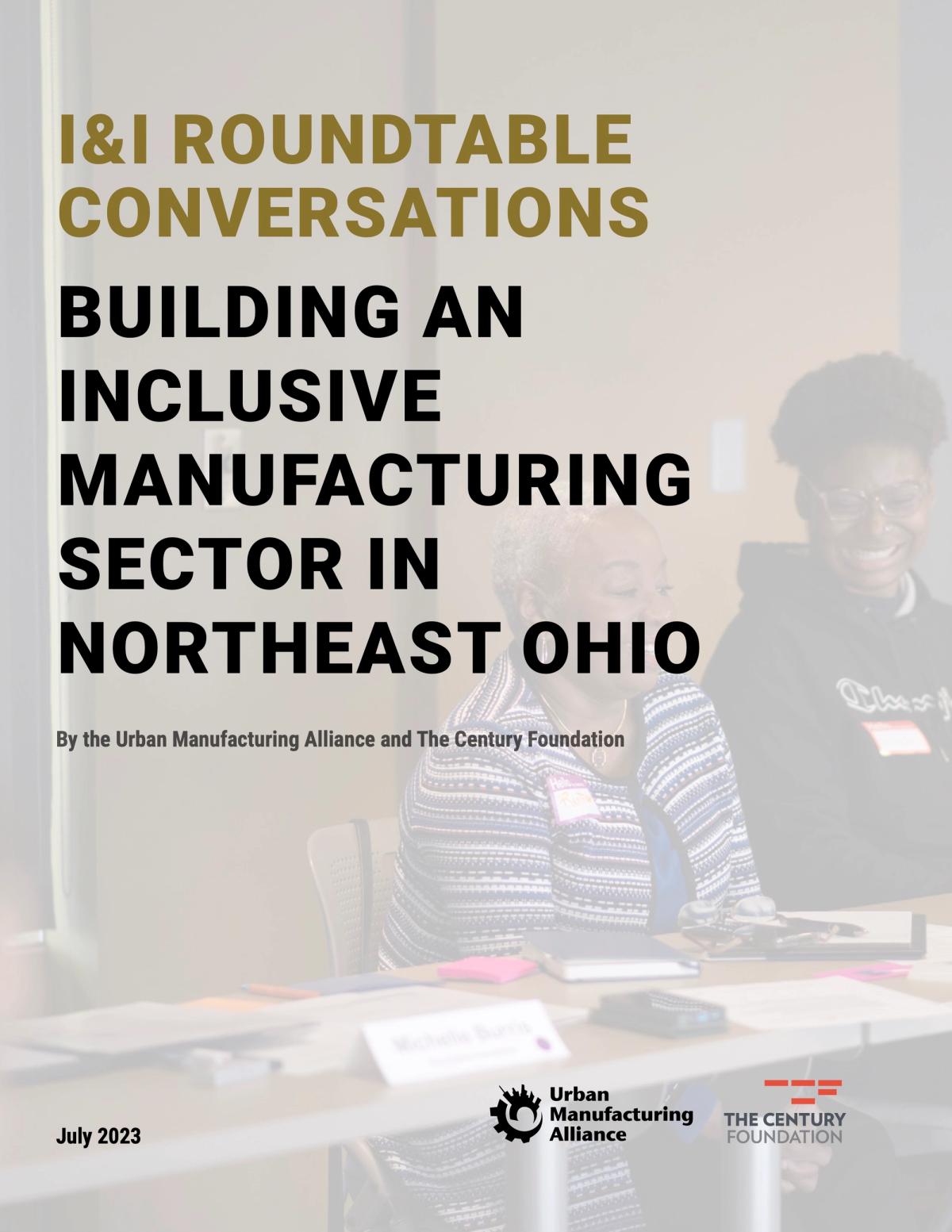
I&I Roundtable Conversations Summary: Lorain County Community College
Building an Inclusive Manufacturing Sector in Northeast Ohio
This report summarizes lessons learned from UMA’s February 2023 roundtable conversation at Lorain County Community College (LCCC). This roundtable brought together key stakeholders in Northeast Ohio’s manufacturing ecosystem including community college administrators and students, employers, community partners, and academics to discuss how to boost racial and gender equity, and create opportunities and self-determined lives for communities that have traditionally been left out or left behind.
LCCC and their manufacturing partners are engaging in critical conversations about the future of the manufacturing workforce, and are well-poised to deliver on their goal of increasing the number of people of color obtaining credentials - and successful careers - in the sector. Other regions can look to this as a model to start building an inclusive manufacturing sector that will pay dividends in the decades to come.
Several promising strategies emerged:
1. Employer LeadershipTo create inclusive workplaces that attract and retain diverse talent, employers will also need to close a “skills gap” at all levels of the organization - from C-suite leadership to frontline supervisors. Soft skills training, partnering in new ways, and integrating culturally competent recruitment and retention strategies into accountability frameworks were lauded as promising strategies for employers.
2. Expand Innovative Earn and Learn Direct connection to industry, clear economic value, and strong employment demand, plus ongoing information sessions, tours, and outreach, have led to this program having among the most diverse student body in LCCC’s manufacturing offerings. LCCC is expanding this model to other programs of study and it informs statewide collaboration with partners in the Ohio Manufacturing Workforce Partnership.
3. Building Strong, Diverse Community Partnerships Employers and training providers in Ohio are demonstrating the power of breaking out of traditional silos to establish broader recruitment partnerships – often with unexpected partners. Looking to faith-based organizations, community-based organizations, and alumni networks are just a few examples of the partners that can support better recruitment and retention outcomes.
4. Prioritizing Psychological Safety In addition to how we traditionally think about workplace safety, work environments that ensure people feel safe, seen, and heard are crucial to long term worker and business success. Several suggestions for establishing these conditions arose during the discussion, including camaraderie around failure, disappointment, and learning best practices moving forward; and providing a safe space and platform for workers to voice their concerns.
5. Modernizing Recruitment Manufacturers are partnering with education and community organizations to demonstrate new tactics that convey the true experience of working in manufacturing. Tactile experiences such as factory tours, videos, and interactions with potential colleagues and managers will go further than traditional methods of recruitment such as career fairs.
6. Actively Providing Wraparound Services Students from diverse backgrounds are better served by coordinated efforts that meet students where they are. These coordinated efforts establish a safety net that help to keep students on a path to personal and career success. For each student, this will be different but common needs are for transportation, child care, technology, and emergency aid (for books, tools, work gear, etc).